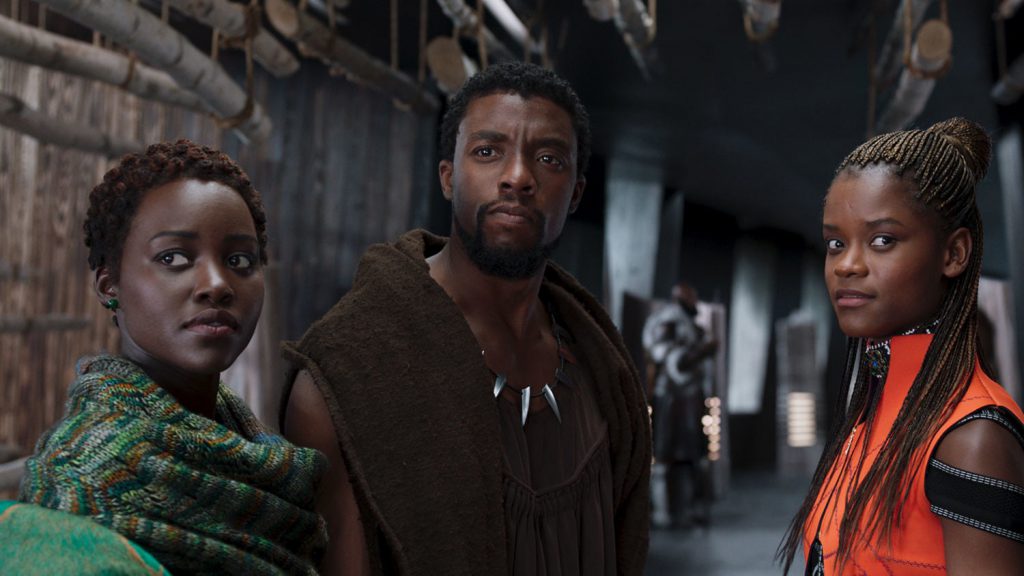The last few years in Hollywood have shown a gradual but seismic shift in the way the industry perceives anything outside of the experience of the straight white guy. Slowly, we’re getting movies with women and people of color in the lead roles, and, rightly or wrongly, this never makes a bigger splash than when it involves comic book movies. Warner Bros./DC’s WONDER WOMAN was a cultural phenomenon when it hit theaters in 2017, and earlier this year, Marvel’s BLACK PANTHER crushed box office records on its way to rewriting what’s possible in the superhero genre. Next year, Marvel will showcase its own female-led superhero movie when CAPTAIN MARVEL takes to the skies, and in 2020, WONDER WOMAN 1984 will be hitting theaters. It’s still not enough – not nearly enough – but it’s a start.
Recently, Marvel Studios head Kevin Feige sat down with The Hollywood Reporter for its producer roundtable and spoke about the need for diversity and inclusion in Hollywood, using the ways in which they made Marvel Cinematic Universe movies even better and their stable of talent greater. A hot topic of debate throughout the entertainment industry has been the idea of an inclusion rider for movies, a contractual representation requirement. For those familiar with sports, think of it as the Hollywood equivalent to the Rooney Rule of the NFL. When asked if he believed the inclusion rider should be mandatory, Feige shied away from speaking for other studios, but was clear that he believed having more diverse people in front of and behind the camera made Marvel a better studio:
Well, one question really is: Should people be forced to do it? And maybe the answer is yes, maybe the answer is no. If you’re in a position of power and you’re the one doing the hiring, we have learned — on our last number of movies and a number of movies that haven’t come out or haven’t been announced — that the more diverse the group of people around the table, the better the movie.

Nakia, T’Challa, and Shuri in Marvel’s “Black Panther”
The studio’s first real experience with this was with BLACK PANTHER, which, Feige says, to Marvel’s credit, had been in the pipeline for far longer than people realized and which had been championed by Disney from the start. But even with Marvel’s incredible roster of talent, Feige said they quickly realized that BLACK PANTHER made them even better thanks to director Ryan Coogler:
Ryan Coogler actually said, “Do you have production designers, costume designers that you like to work with?” And we said, “Sure, but if you have some let us know.” And he said, “Well, I’ve worked with various people on films that were excellent but much smaller than Black Panther.” And in the case of every single crewmember that he brought to us, they blew us away, they were incredible. And it was because we were open to listening and giving people an opportunity. And now, you know, we’re desperate to work with them all on all of our films going forward.
But really, it all boils down to the fact that Feige, and the rest of Marvel and Disney, understand how important representation is on a personal level. In the end, BLACK PANTHER and CAPTAIN MARVEL and other movies yet to be announced aren’t just important because they are money-making franchises. They’re important because of what they do for kids – and even adults – seeing themselves in the heroes on screen:
[Black Panther] represents real hopes and real dreams and real representation. And so there is a certain amount of pressure that came with that, delivering on what people had been dreaming about for years, whether they read the comic book or not. Because a lot of people said “Wait a minute, this is a hero that looks like me,” and the importance of that really can’t be understated. People get so excited to see themselves on that big screen, and you take that very, very seriously.
Whatever happens with their movies moving forward, it’s good to know that the entire Marvel team, from the head of Disney down to the actors, really gets it. It may have taken them a while to arrive, but at last, they’re here. Hopefully, they continue to change the industry for the better because of it.
FEATURED
A Timeline of Hollywood’s Most Influential Women in Film
Filmmaking has made quite the strides from its humble beginnings in the late 1800s, when most films were short documentaries depicting everyday...
March 2024 Movie Releases: The Biggest Movies In Theaters This Month
Even though it’s only March, it’s already starting to feel like the beginning of the summer blockbuster movie season. This month sees...
Paging Anime Fans: Where You Can Watch The New Demon Slayer: Kimetsu no Yaiba Movie
The Demon Slayer: Kimetsu no Yaiba movies have been a huge success with audiences, not just in Japan, but around the world. It’s why...















